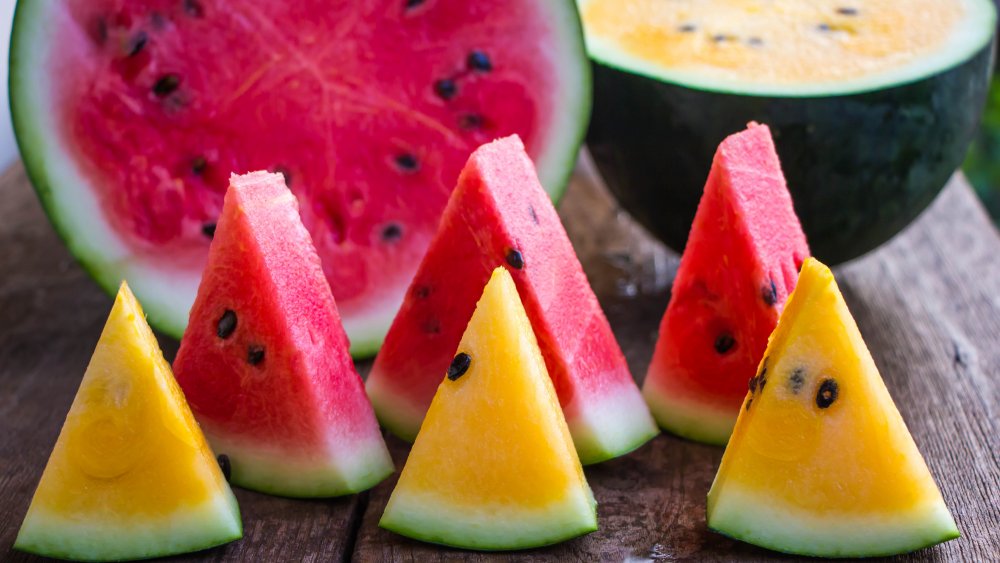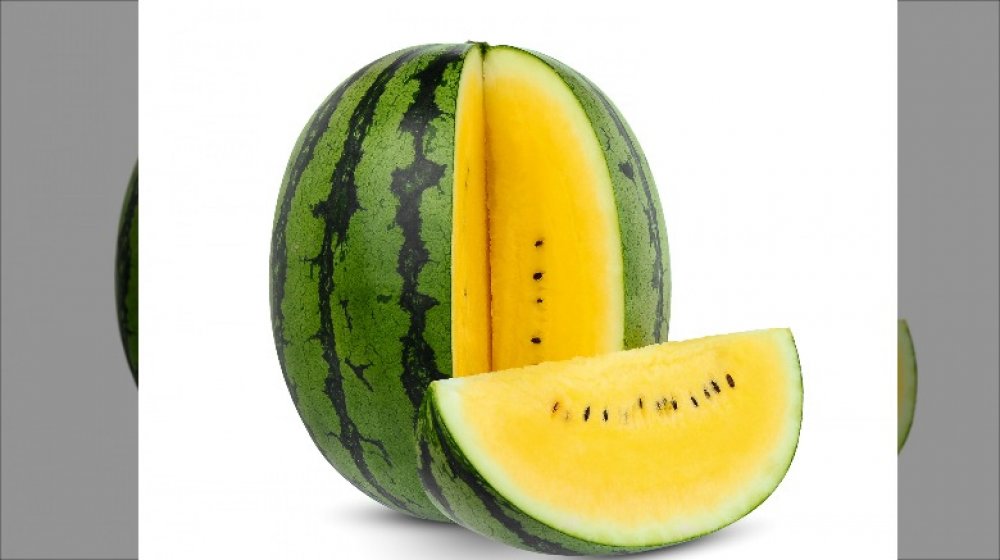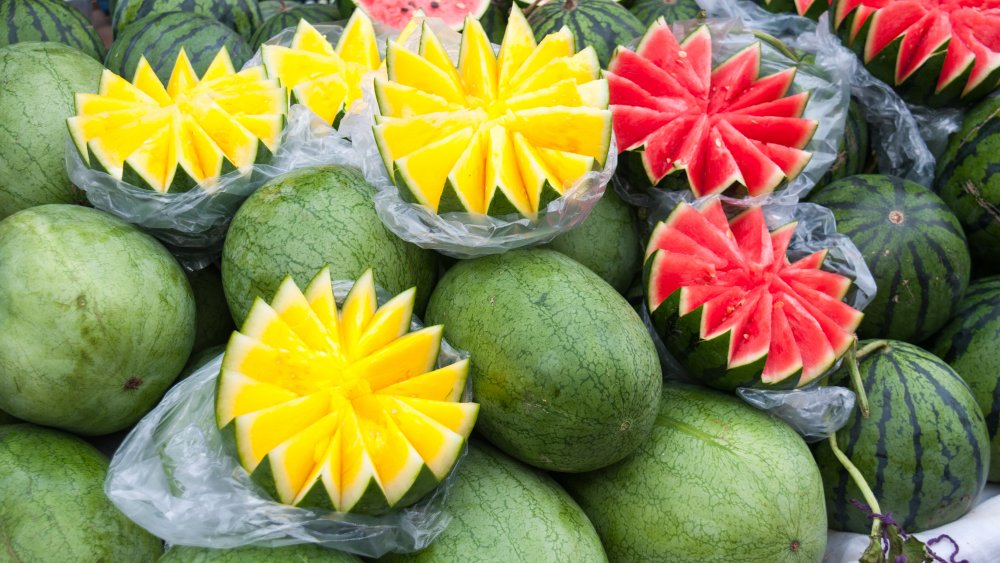What's The Difference Between Red And Yellow Watermelon?
Ahh, watermelon. What could be a more iconic summertime treat? You can almost picture it now, can't you? That giant stripey green fruit that you cut open to reveal the sweet, drippy, seed-studded pink interior... but wait, what if you slice into it and the flesh isn't pink? What if the inside of your fruit is, instead, a bright, canary yellow? Is there something wrong? Is there something wrong with your watermelon? Will it make you sick? Maybe you should just toss the whole thing in the trash...
Before you go chucking your fruit into the bin, there is good news for you. There is such a thing as a yellow watermelon and, although slightly different in taste to the familiar red watermelon, the yellow variety is equally delicious.
What is a yellow watermelon?
Unlike cube-shaped watermelons, yellow watermelons are 100 percent natural. While red watermelons are quite ancient, their seeds having been found to date back some 5,000 years, yellow watermelons are slightly less ancient and have been around for about 4,000 years. They probably originated in Africa, and are sometimes known as "desert kings" due to their ability to grow in the driest of climates.
When it comes to taste, yellow watermelons are usually sweeter than red ones, with What About Watermelon describing them as having "subtle hints of honey." Yellow watermelons are available in seeded and seedless varieties, though MyRecipes.com notes that seedless varieties tend to have a crisper texture.
Nutritional differences between red and yellow watermelons
Red watermelons get their coloring from a phytonutrient called lycopene, which is the same antioxidant that makes tomatoes red. Lycopene is linked to both heart and prostate health and may also help to prevent certain types of cancer, but it can also, when consumed in excess, cause gastrointestinal distress (e.g. diarrhea, nausea, and similar unpleasantness).
Yellow watermelons lack lycopene, but they compensate for this by being rich in beta-carotene, and they're also high in the heart-healthy minerals magnesium, iron, calcium, phosphorus, and potassium. Both types of watermelon have a high water content that can help to hydrate your body, and both are equally tasty — and pretty — in a wide variety of recipes.


